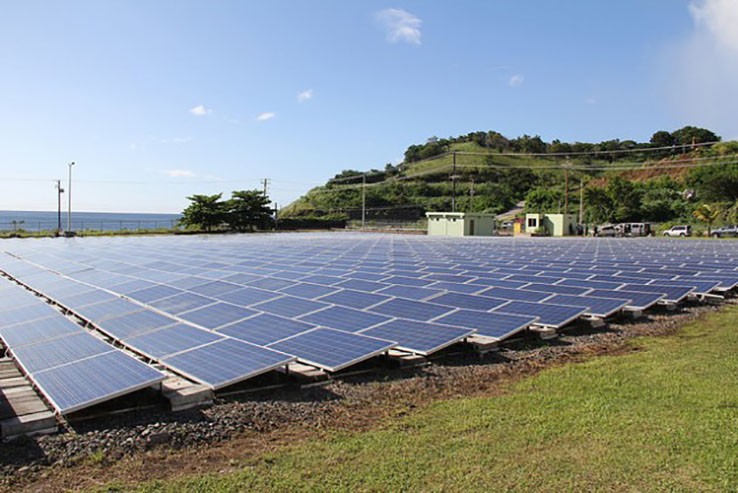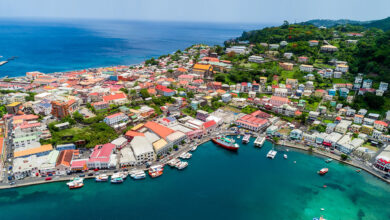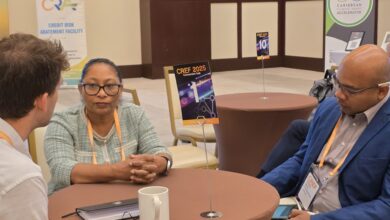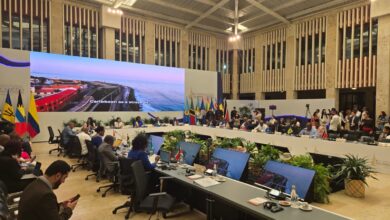FLORIDA, United States, Tuesday October 20, 2015 – The Inter-American Development Bank (IDB) and the Caribbean Development Bank (CDB) have signed off on the Sustainable Energy Facility, a US$71.5 million loan and grant package that will fund renewable energy and institutional capacity projects in six Eastern Caribbean countries.
The signing by Presidents Alberto Moreno of the IDB and Dr. William Warren Smith of the CDB took place this morning at the Intercontinental Hotel in Miami, ahead of the start of the annual Caribbean Renewable Energy Conference.
The IDB noted that Antigua and Barbuda, Dominica, Grenada, St. Kitts and Nevis, St. Lucia, and St. Vincent and the Grenadines are island states with small and isolated electricity markets, lacking the scale necessary to import cheaper fossil fuels, such as natural gas, and inadequate development of renewable energy potential. And it said the SEF can change the energy matrix of those countries and increase energy security, which is critical for these economies to be competitive.
“This operation has the potential to trigger a radical transformation of the energy matrix of the Eastern Caribbean,” said Christiaan Gischler the IDB’s team leader of the SEF.
“Geothermal power plants established in each of the Eastern Caribbean countries with potential could have aggregate capacity of proximately 60MW, which would substitute the equivalent amount of diesel and heavy fuel oil currently used for baseload power generation. This would displace an average of almost a million barrels of oil per year, which is equivalent to a 44 per cent reduction in oil imports or US$56 million per year.”
Gischler added that that public private partnerships could be a mechanism by which many of the energy projects could be successfully delivered.
“Under SEF, Eastern Caribbean governments and geothermal developers will be encouraged to form public and private partnerships. The PPP approach will encourage private partners to assume the loans and minimize the risks associated with the geothermal development. Governments will be able to diversify their energy mix without increasing their debt load,” he said.
A component of this facility is concessional financing from the Clean Technology Fund. The availability of these resources will catalyze the private sector capital and expertise required for developing sustainable energy projects in the region.
Tessa Williams-Robertson, Head of CDB’s Renewable Energy and Energy Efficiency Unit, highlighted the critical importance of a Facility like the SEF that makes concessional resources available for investment in sustainable energy.
“A substantial focus of the SEF will be to provide seed resources to CDB’s GeoSMART Facility which is being established to support geothermal energy development in the region. GEOSMART will provide financing instruments appropriate to address the level of risk associated with each stage of the geothermal development”, she said.
SEF Financing consists of: a Global Credit Loan (GCL) from IDB’s Ordinary Capital Resources (OCR) to CDB of up to US$20 million; a grant to CDB of up to the equivalent of US$19.05 million from the Clean Technology Fund; a grant to CDB of up to the equivalent US$3,013,698 from the Global Environment Facility Trust Fund (GEF Grant); and a counterpart contribution of US$29,435,000 which is available within CDB’s existing resources for the relevant disbursement period to finance projects which meet SEF objectives, including for private sector electric utilities and at least one energy sector/policy loan for at least one of the beneficiary countries.
Originally published by http://www.caribbean360.com






